Organic Modern trend – how to embrace the aesthetic that prioritises comfort
Modern minimalism meets nature in this popular design trend

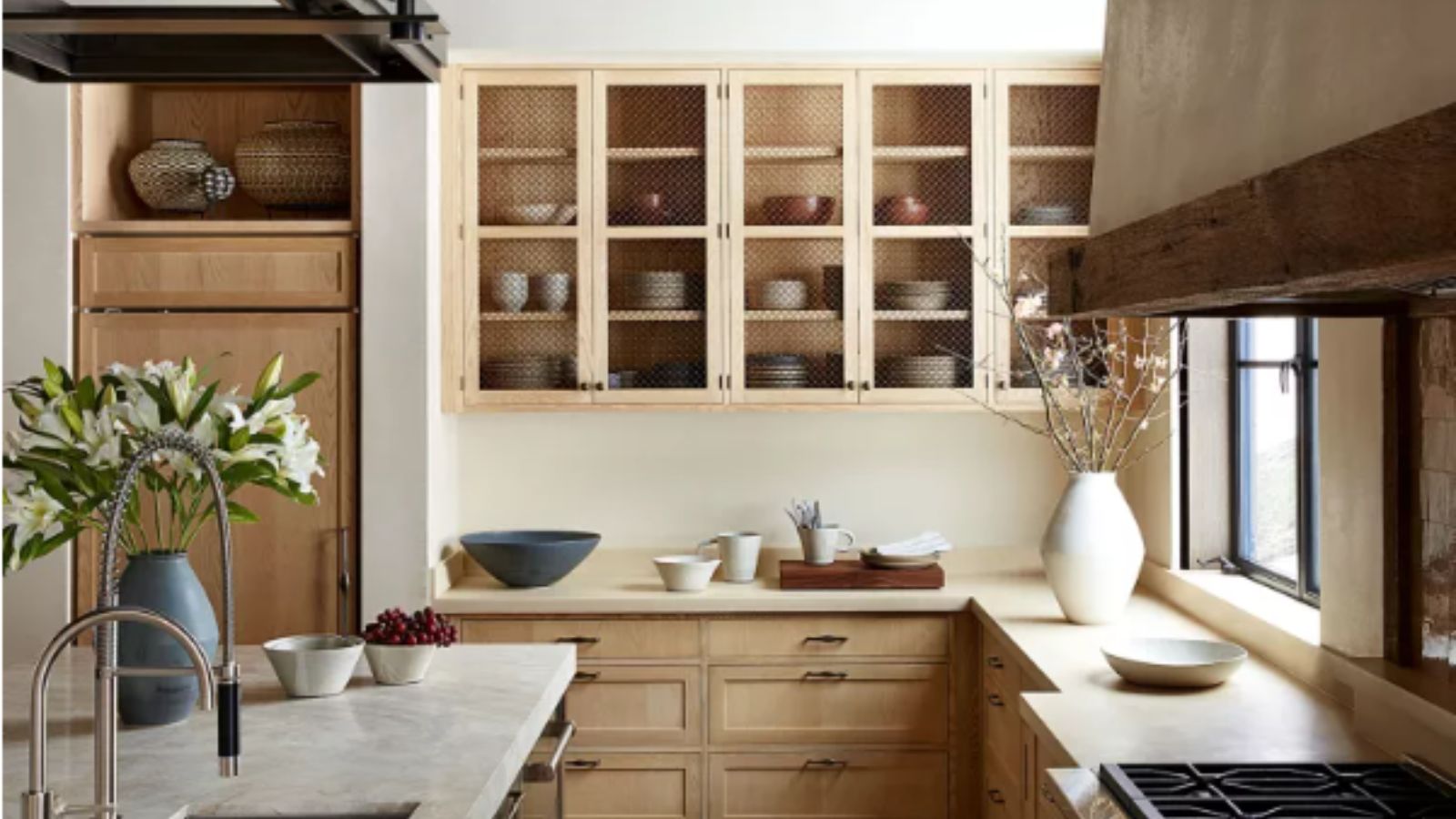
The Organic Modern trend has been taking the spotlight on social media over the last few months, with natural elements taking over otherwise minimalist modern spaces.
Interior design trends can often come and go, however, the Organic Modern trend has a surprisingly long history that lends itself to the effortlessly timeless appeal of the look. This trend merges modern design styles with naturalistic elements for a look that is destined to stand the test of time.
We have spoken to designers about the Organic Modern trend to find out how you can achieve this refined look in your home.
What is the Organic Modern trend?
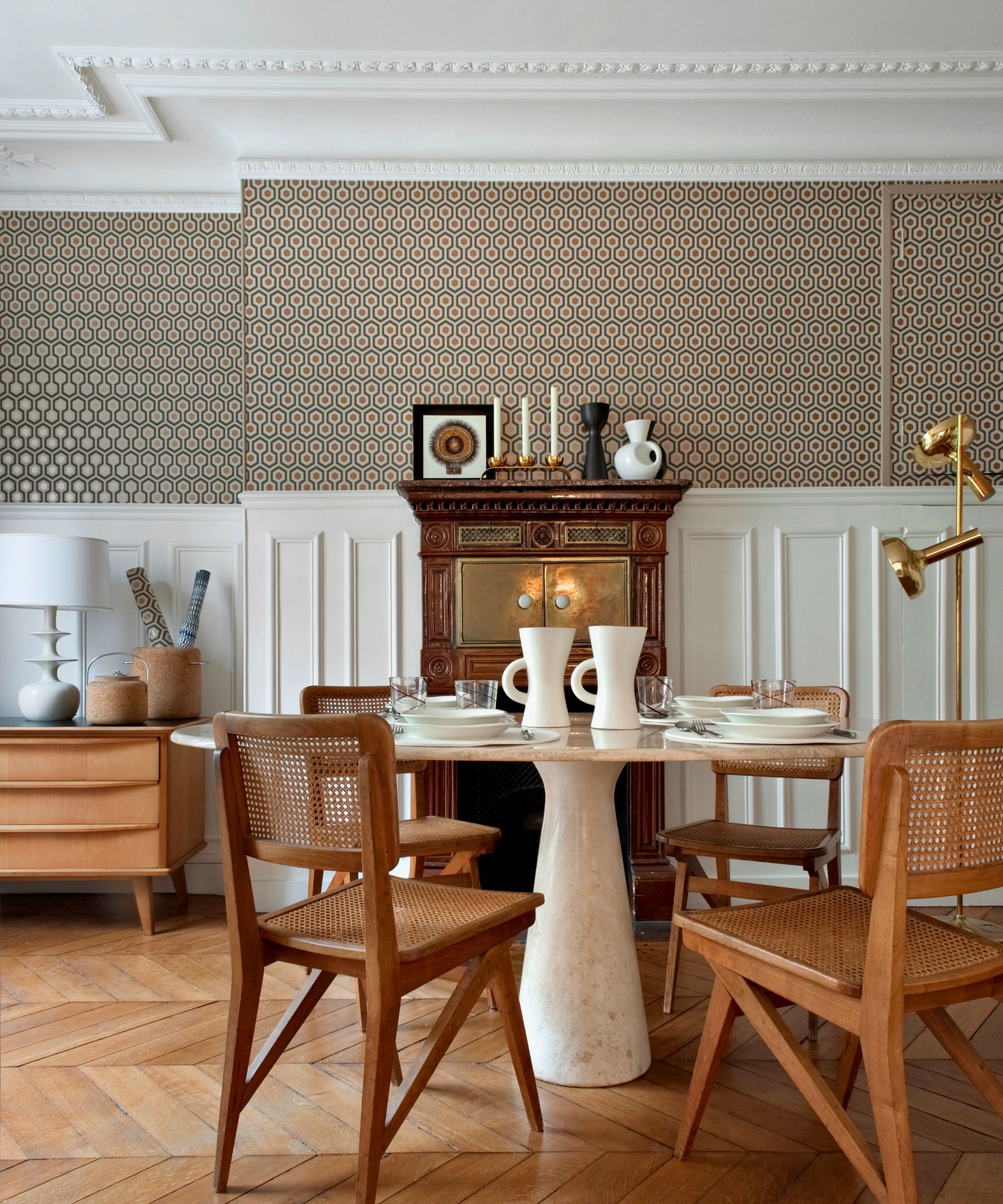
The Organic Modern trend is a surprisingly eclectic blend of minimalism, mid-century modern decor, and bohemian design styles, layered together with organic elements, forms, and a modern organic color scheme to form a refined but textural space that exudes sophistication.
The style harks back to the early 20th-century when the concept of the organic building came to the fore. The style collapsed in the middle of the century when the supply of natural materials was disrupted. However, the present-day focus on sustainability and reaction against mass consumerism has given rise to the naturalistic trend once again.
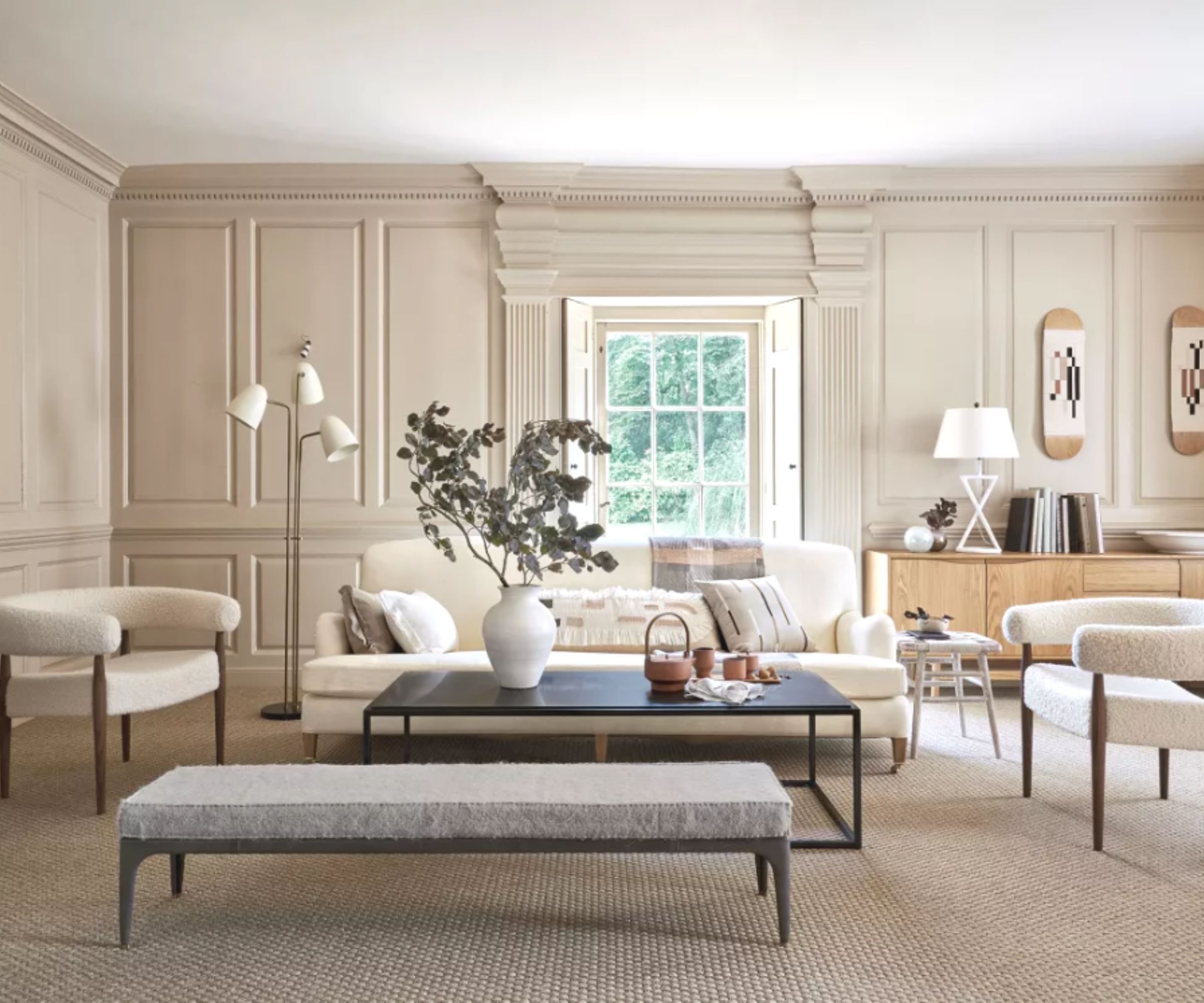
The heart of the Organic Modern trend is the careful balance between sleek, crisp modern lines with raw earthy elements. The aim is to create spaces such as neutral living room ideas that are warm, neutral, and sophisticated whilst maintaining functionality. The final look ultimately harmonizes the outside world with a modern lifestyle.
Why does the Organic Modern trend have such an appeal?
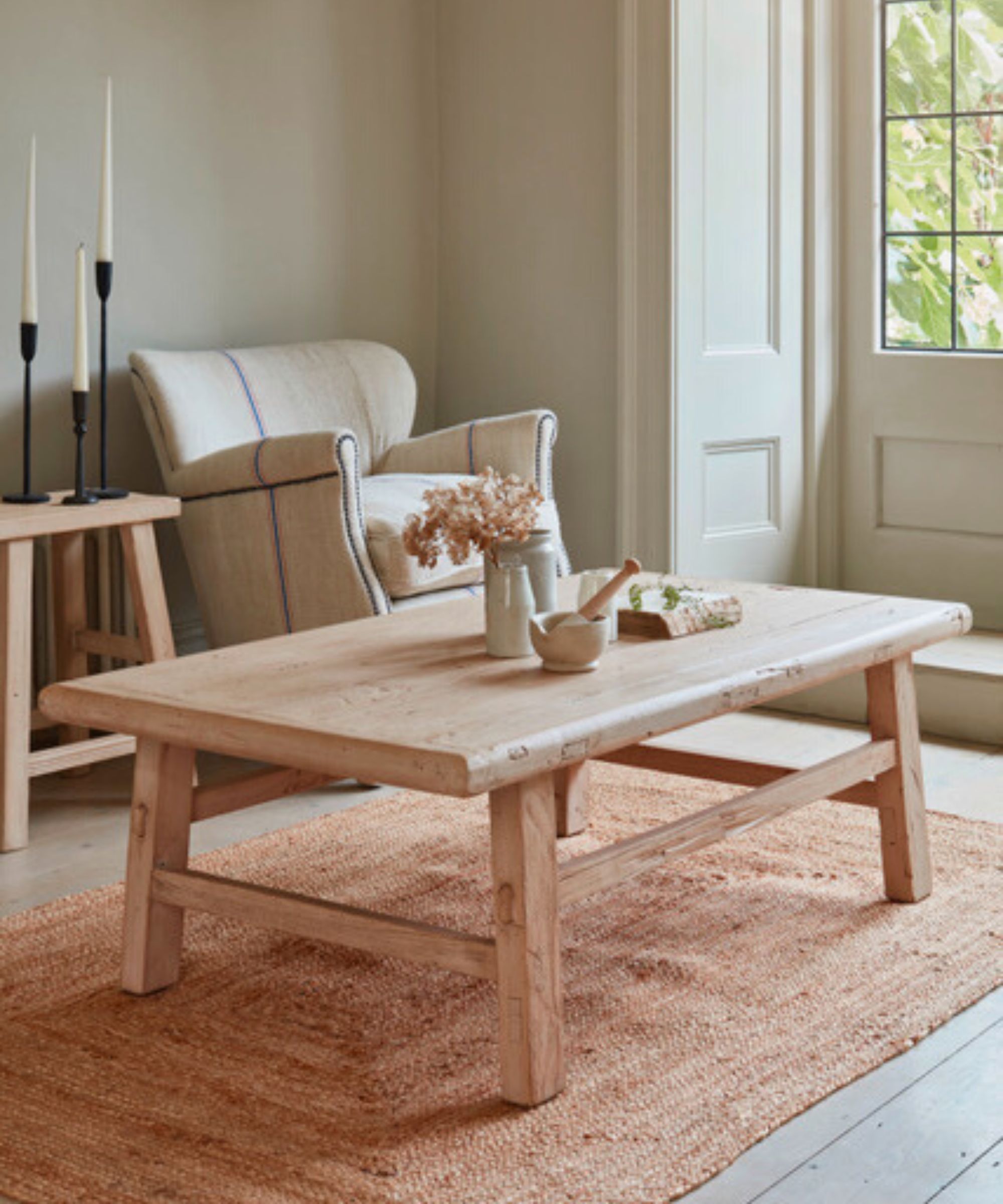
The Organic Modern trends focus on modern design paired with sustainable furniture and calming natural elements means that it is charmingly timeless.
Design expertise in your inbox – from inspiring decorating ideas and beautiful celebrity homes to practical gardening advice and shopping round-ups.
‘There is something charming about reusing vintage pieces or antique furniture.’ explains co-founders of vintage interiors store Home Barn, Sarah, and Sally Wilkie. ‘Often with their own characterful history, these pieces can add depth and interest to your interior whilst also providing a talking point for guests. From beautiful weathered wood to salvaged materials and those with inherent markings, these distinctive details only add to an item's unique appeal. It's also more sustainable to decorate with vintage, as you are breathing new life into an existing piece of furniture, offering it a new purpose and chance to shine whilst remaining kinder to the environment by reducing waste.
‘Organic materials have increased in popularity as more homeowners look to capture a raw, rustic, pared-back look in their homes – think linens, cottons and other tactile materials that add a feeling of softness to the space.’
How to incorporate the Organic Modern trend into your home
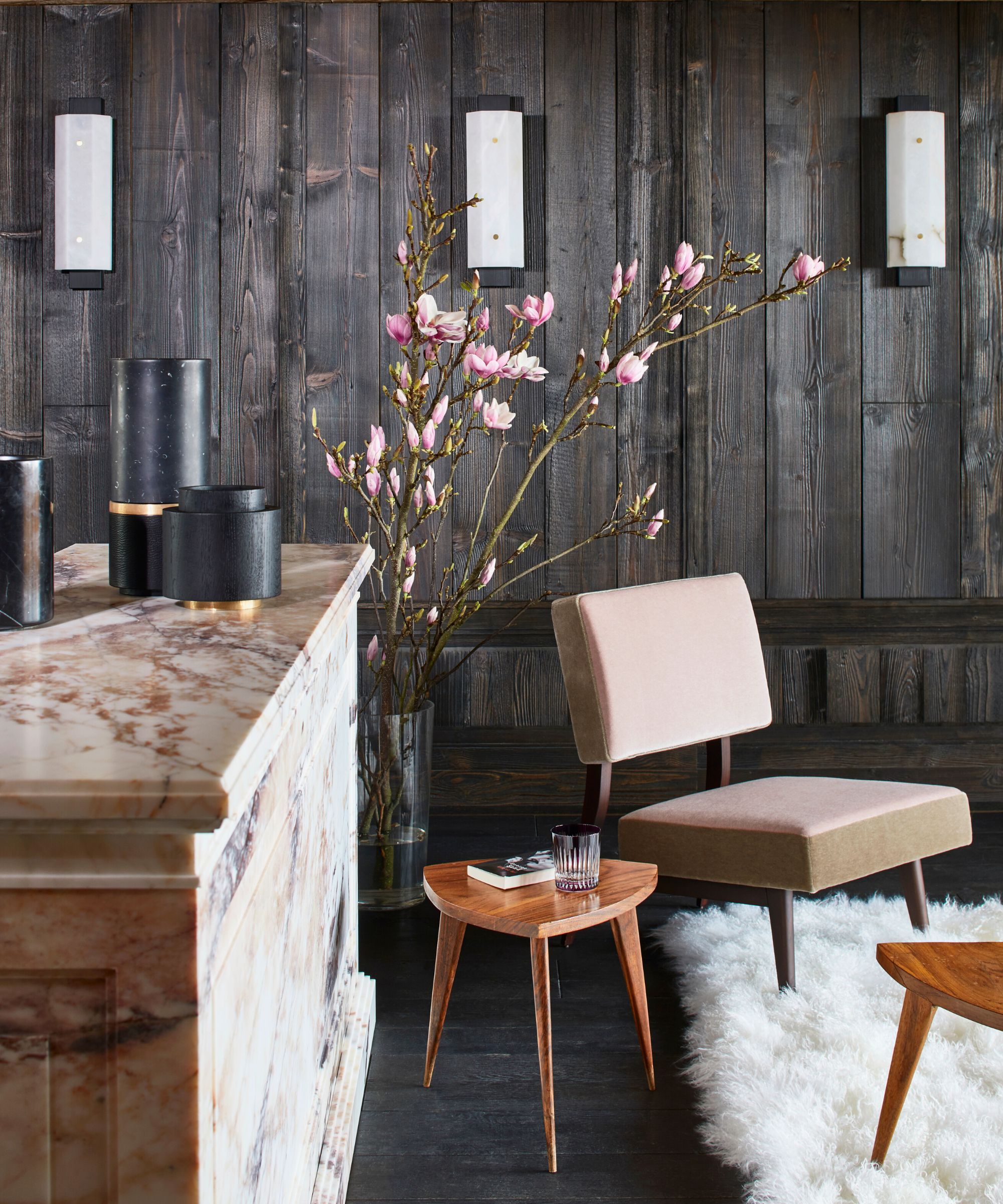
To emulate the Organic Modern trend, start with a foundation of clean modern lines and organic surfaces such as in this project by Humbert & Poyet pair, Christophe Poyet and Emil Humbert. ‘Organic materials were transformed into contemporary yet timeless elements. The result is a juxtaposition of materials that respect the identity of the building. Wood is everywhere and oxymoronically blends with noble metals to form a clean, graphic contrast. The traditional architecture of the chalet is retained in the structure and yet eagerly responds to a more modern design.
‘The sleek style symbolizes the harmony between tradition and modernity. The floors are a dark-stained oak which contrasts with the snowy landscape outside. The warmth of the room is then created by mixing colorful velvet and cashmere fabrics with exceptional furs.’
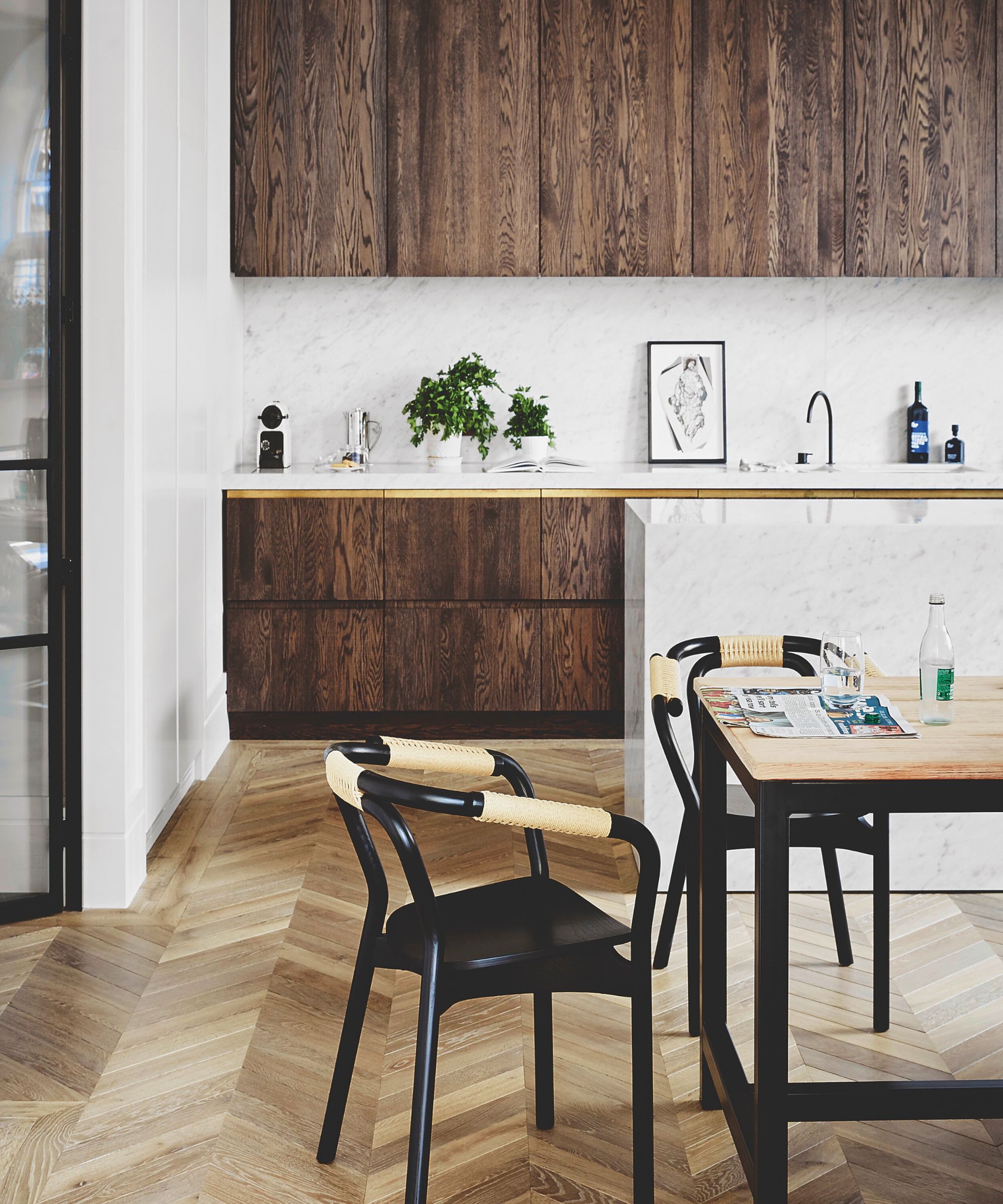
‘The focus is on hand-crafted and hand-worked finishes -scraped, sawn and treated grain effects in extra wide and mixed length planks add depth and individuality to a space,’ reveals Sarah Escott, Amtico Design Manager. ‘Mindfulness and wellbeing remain a key topic and creating restful spaces to retreat to from our busy lives is more important than ever. Monochromatic schemes based around the beautiful, natural wood grains bring a sense of calm and order to a space and combine well with soft industrial looking concretes, and neutral stone and slate floors in large format, simple tile shapes.’
Decorating with neutrals continues throughout the decor, Sarah adds. ‘Beige is one of the biggest color trends for interiors in 2022, with green being used as an accent colorway. Grey used to be the color of choice for designers, but this is now starting to shift towards a more natural look, with a lot more greige options (grey and beige combined) becoming available.’
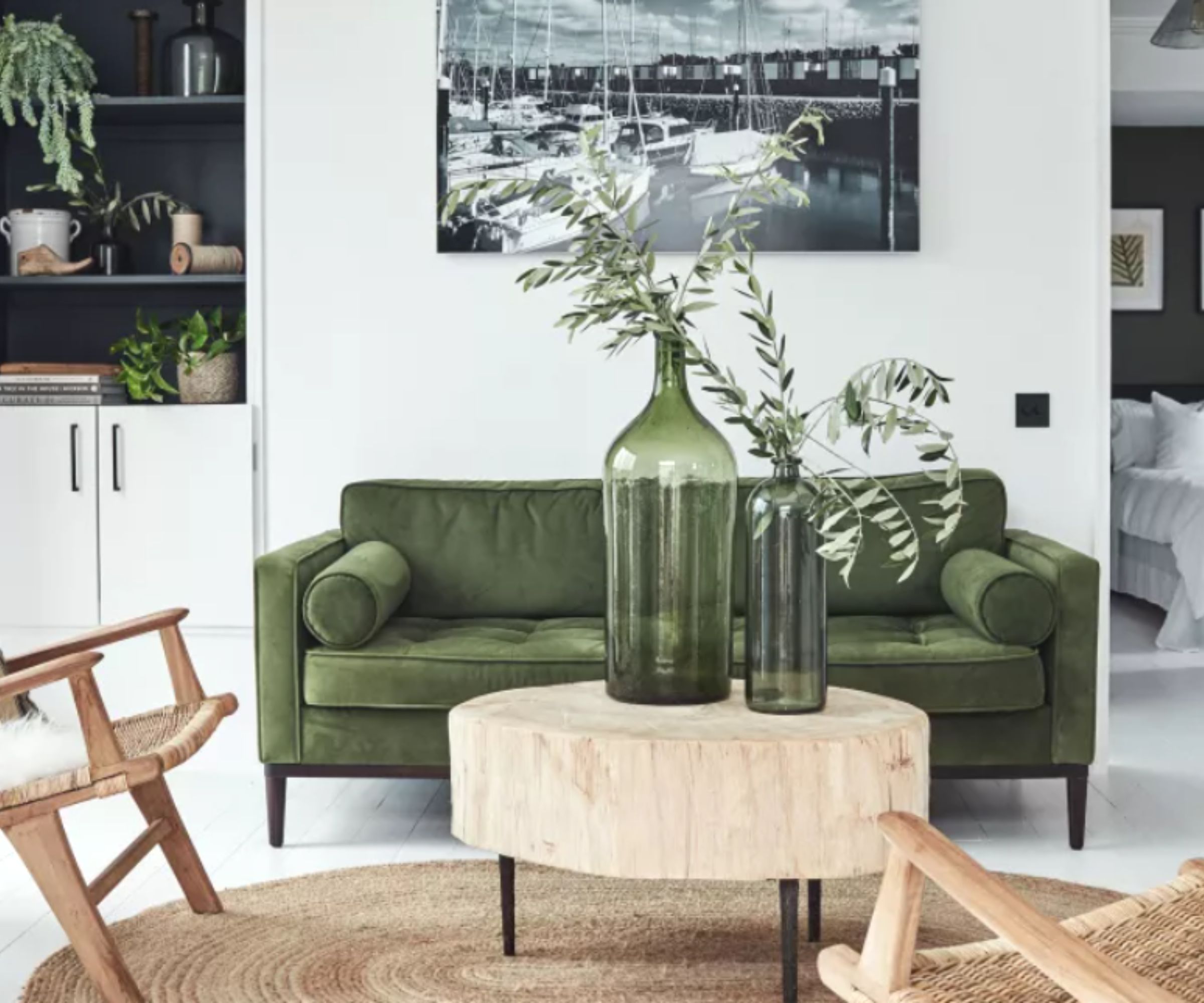
Natural light should be emphasized in an Organic Modern space, with lighting fixtures made from natural materials in organic forms, avoiding harsh angles, to maintain the soft allure of the trend.
Decor should remain minimal due to the trends call to minimalist styles, however, there can never be too much greenery in an Organic Modern space. Incorporating gorgeously sculptural indoor plants such as potted olive trees, dried grasses, ZZ plants, or ferns adds character to the space as well as draws the outside in.
Finally, and arguably the most important aspect of the Organic Modern trend is the measured layering of natural, rustic textiles throughout the space. Blend soft linens, rough Jutes, and sleek stones such as versatile marble through to rugs, soft furnishings, lamps, and planters to create interest and depth. Try to balance soft, touchable fibers alongside rougher pieces within the space for the ultimate Organic Modern juxtaposition.

Chiana has been at Homes & Gardens for two years and is our resident 'queen' of non-toxic living. She spends most of her time producing content for the Solved section of the website, helping readers get the most out of their homes through clever decluttering, cleaning, and tidying tips. She was named one of Fixr's top home improvement journalists in 2024.